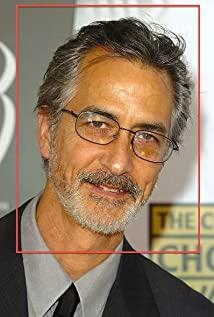This year is the seventh year I have lived in the United States.
I have lived in three different cities in the United States for a long time, and I finally settled down a little bit this year. Looking back at my more than 20 years in China, I also moved to different cities, and started to migrate from elementary school. I have been unable to face the concept of "parting" from a very early time. There is a glimpse of light in my memory, and I have been forced to frame it.
For example, when the sixth grade of elementary school was approaching graduation, I was standing at the back door of the classroom in a noisy self-study class, looking at the corridor outside through the narrow glass.
For example, when I was in junior high school when I didn't want to talk with others, I read in a book that a certain author said, where is the grandfather who taught her to recite poems as a child is buried. At that moment, I heard the sound of the TV coming from the next room, and I was thankful that I hadn't lost that moment. But I also faintly know that one day in the future I will eventually lose.
For example, before the college entrance examination at the age of seventeen, I opened my large closet door in the dormitory, stared at the personal belongings one by one inside, and asked myself for two seconds in a daze: When I was an adult, it really was like this Is it over?
In my junior year, I heard someone come to clean the dormitory downstairs, and the piles of things that were picked up were thrown directly underneath, crackling, breaking a lot of time that many people could not grasp.
For example, before moving to Texas from New York, I stood alone on the terrace of a small apartment, looking at the incredibly quiet and green early summer courtyard.
I always have a strong obsession with saying goodbye, and I often have to stop and feel the moment as if it was a glorious reflection.
At the end of the second grade of high school, the teacher printed a reading article and sent it to each class. It was Shi Tiesheng's "I and the Temple of Earth".
That was the first time I read the article in its entirety, and when I read it, I was overwhelmed, so I turned it back over and over again. Obviously it was not the bloody romance of life and death that I loved to watch at the time, but it made me almost eager to read it.
In 2017, I had a course assignment to make a giant screen short film. At one time, I wanted to make the theme of "Me and the Temple of Earth". Although I have never been to the Temple of Earth, the kind of immersive melancholy is the same. Literature and art are really wonderful, and personal things like feelings can be passed on to many irrelevant people through them over a long distance.
My feelings about "A Place without a Support" are similar to those of "I and the Temple of Earth".
The other party didn't tell any great sensational stories, but I just couldn't control my tears.
I have not always been a big-time person. I know there are many grand reasons for this film's award. For example, it reflects the living conditions of a class and thus reflects the great changes of the times and society. But I always shed tears in very personal emotions. For example, the terminally ill old lady finally returned to the favorite beauty of her life and took pictures of the hovering swallows with her mobile phone; for example, the heroine was glued to pieces one by one. In the late-night RV, smiling and staring at the pictures that represent memories; for example, the heroine walks alone into the vast valleys and jungles, looking at the trees that towering into the clouds and endlessly piously.
Those are comparisons of eternity and moment.
How heartbreaking.
I once wandered along the banks of the Hudson River, looking fascinatingly at the vast starry sky, and suddenly thought that every starlight we saw had already died out, and perhaps the light we produced at this moment will illuminate hundreds of millions of years later. A little corner of
It's just that everyone only has the fate of looking at each other across the Milky Way.
After many people feel strong emotions, they want to do something to the right medicine in the next step. At the bottom of each of my emotionally rich articles, there is always such a response: If this is the case, what can we do?
But this is something we can't do.
Time can't be retained, even more can't be retained together. It just seemed that the green hills that couldn't be covered were faint, and the flowing green water was long.
The heroine in the film has many opportunities to stop and live a more decent life. She has a biological sister, who has reserved a room for her at home, and even her brother-in-law is her old friend. The younger sister said that she couldn't understand her escape-the heroine left home when she was a teenager, married a man she knew not long ago, and lived in the middle of a desert. After the man passed away, she guarded the desert alone and did not move back to live with her family.
The younger sister said emotionally that the "weird" habit of the heroine when she was a child was actually because she was more brave and honest than others.
For a person who has been lonely and courageous for half his life as if he was holding a pillar, this word of approval came a bit late.
Through these few lines, my brain fills up the heroine’s teenage years. The feeling of being outside is lingering-I'm afraid it's just like me in junior high school physical education. When it comes to free time, I don't know what to do. I'm not good at sports, and I can't look down to find someone to accompany me. Walking and chatting, I always find a place to hide alone. So physical education became the class I missed the most.
Perhaps it is also like the mood of the heroine in high school described by Sally Rooney in "Normal People": She is accustomed to observing others at a distance, and she always has a strong feeling that her real life takes place in a distant place. , It happened in a place where she was not present-she didn't even know if she could find that place in this life and become a part of it.
Ever since I left the city where I was in elementary school, I always felt this way when I was alone.
I know that one day I will leave the place in front of me. I know that everything I experienced at that moment will become a cloud of smoke. I even figured out how to cut off contact with these general acquaintances of the moment.
In fact, I met a lot of good people. It was because I was not good, but I let my soul drift away, and made the goodbye decision early in the morning.
So when my sister said, "I really want my sister's company these years", the heroine will say in a daze: This matter is not good for me.
I know it's my fault, but I won't stay for you after all.
The heroine is not without the opportunity to "start again".
After her husband died, she was alone in guarding the house in that desert town. Later, the mine in the small town was closed, and the entire town had to be removed. The heroine who lost her home drove around in a broken car. She took with her the small objects that she couldn't give up, representing the bits and pieces of life, along with the car full of memories.
Many people do not understand why the heroine is willing to stay alone in the desert. Later the heroine replied by herself: her husband has no father or mother, and they have no children. If she left the small town in the desert, then her husband would seem to have never existed.
But her husband is clearly such a lively person, everyone in the town knows him and all like him.
The existence of human beings is so small and short-lived that even once it disappears, it is impossible to prove that it has existed.
Perhaps because of such a content, many people who have watched this film interpret the heroine's behavior from the perspective of "the pain and loneliness of losing a partner". In fact, the behavior of the heroine is not just the sorrow of "the head of a white mandarin duck flying without a companion". If she just needs someone to accompany her, she can find a way to heal herself.
But she chose not to heal or reconcile.
I believe that her husband Bo, like her, is a person who does not belong to any place like Piaoping. They knew they were going to "other places" since they were young. Fortunately, they met each other instantly, and fortunately they were able to depend on each other for many years. They are not so weird and difficult to get along with, but their icy deep heart is not filled with the ordinary warmth of the world.
Meeting each other is a fluke.
When Dave confessed to the heroine and asked her to stay, the heroine might not have thought about it.
This old man is not bad too. In his later years, he reached a reconciliation with himself and his family and became a kind grandfather. His family was so gentle and kind and welcomed her into the family with open arms.
But when she saw Dave and her son playing four hands together, the feeling of "outsiders" returned.
Throughout her life, she was not waiting for a reconciliation or looking for an answer, she was just used to wandering. This beautiful house, this warm home, after all, does not belong to her. She is a poor and embarrassed person, but she is stubborn that cannot be changed.
So she continued on the road.
During the journey, she saw stars billions of light years away, and she smiled and said happy new year to the air while holding fireworks. She talked with the old man who healed himself after losing her son. She looked up at the towering tree that had existed for some time.
How vast is the universe, and how small and short is the existence of human beings.
Whether it is a nesting swallow or a deep jungle, animals and plants have been entrenched in that corner for a long time, accompanied by generations of people-and she is just a passerby after all. Her past, and even her existence, were just a trivial flick of the stars during the thousands of years when the stars glowed and the trees grew.
My life also has boundaries, and the grass and trees are evergreen.
At this time, I remembered what Shi Tiesheng wrote in "I and the Temple of Earth".
He said: "Now I am walking slowly in this garden with my car, and I often feel that I have been playing for too long when I ran out by myself." He will remember one night when he was sitting alone by the altar. Reading under the street lamp, Suona suddenly heard from the dark altar. He listened to the endlessly circling voice and fell into infinite contemplation.
And he knew that one day, that voice would call him back.
Shi Tiesheng’s mother who constantly misses the memory and the husband who the heroine of "A Place to Nowhere" constantly misses are both tender signs that represent the years. The wedding vows that the heroine recites to the wanderer under the tree permanently immobilize the infinite tenderness of the past in the memory. It is also like the suona that Shi Tiesheng heard, resounding in the past and the future, becoming the only thing that cannot be grasped in the years. Extinguished lighthouse.
When the great sorrow is dispersed into the daily life, the tragedy will not be so clear, and the sadness of forever lost love is only turned into a silhouette of a peaceful life.
The old man who lost his son in the film said: "One of the things I love most about this life is that there's no final goodbye. You know, I've met hundreds of people out here and I don't ever say a final goodbye . I always just say,'I'll see you down the road'. And I do. And whether it's a month, or a year, or sometimes years, I see them again.” (My favorite in this life is, There is no goodbye in the world. I have met hundreds of people, and I never say goodbye to them, I just say: See you on the road. Then we will see you. Whether it’s a month, a year, or A few years later, I will always see them again.)
The old man said that he knew that one day he would see his dead son again.
For sensitive adults, the answers to many feelings do not point to a methodology that can be put into practice. It's not that you are sad and upset to move forward, you are short of money and work hard, and you are lonely and embarrassed to go to family or love-the real problem can be solved in this way, but the hole in your heart is always there.
Broken things cannot be repaired, and this feeling of dissociation cannot be cured for a lifetime.
That's why they are always on the road.
Life is so short, it is too wasteful to reconcile.
In fact, there are many people in life, and we have already seen them for the last time. The rest of their lives may soon be overwhelmed by the dust in memories.
But after all, we can believe that one day we will come to the end of the road. Although the landscapes and trees we have seen will not remember that we once existed, when we wander to a certain moment, there will eventually be a voice calling us back.
Back to the depths of memory, back to where the soul is. Just like the sentence Li Yu said in "Guanyin Mountain": "Parting is not forever, being together is forever."
See you down the road.
View more about Nomadland reviews










